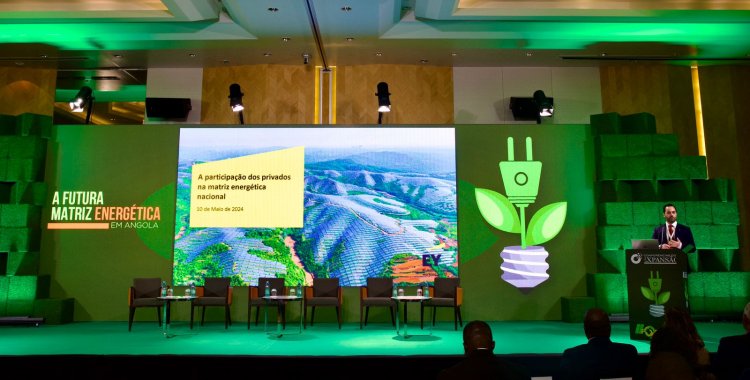Vítor Fontes, who was speaking at the 2nd edition of the Energy and Environment Forum, organized by the weekly Expansão, highlighted that only 25 megawatts (MW) of the current installed production capacity result from private investment, "which should make us reflect".
According to official data, Angola reached an installed electricity production capacity of 6200 megawatts (MW) last year, an increase of 60 percent over the 2400 MW that the country generated in 2015.
The head of Asaer stated that steps were taken to improve regulation in order to obtain greater private participation, but the results "have not been appearing", pointing to the tariff issue as the main obstacle.
"The tariff is one of the lowest in the world, if not the lowest and does not cover operational costs, so it is very difficult to attract private individuals to the sector", highlighted Vítor Fontes.
On the other hand, "it is not possible to deal in a clear and transparent way with interlocutors and it is always necessary to listen to other actors, in particular the Government, to have a minimum of guarantees for investment".
With regard to regulation, he drew attention to the need to regulate mini-grids and domestic solar systems, as at the moment Angola's biggest problem, he stated, is not the production but the distribution of energy.
Solutions are therefore needed to place production closer to the final consumer, stated the president of the Association, remembering that 232 locations that are suitable for the use of mini-grids have already been identified.
"Bringing electricity to all points in the traditional way is very expensive, and other solutions like these are essential to increase the electrification rate", defended Vítor Fontes.
According to the national director of electrical energy, Diógenes Diogo, the executive hopes to increase from the current installed capacity of more than six gigawatts (GW) to double that in 2030, with the weight of clean energy increasing from the current 66 percent to 72 percent in 2027.
André Afonso, partner at the consultancy EY, said that there is financing for the energy sector and argued that private participation in the national energy matrix should be encouraged.
"Renewable energies have been, worldwide, one of the most successful sectors in mobilizing public funds", highlighted the expert.
To attract this investment, he considered it essential that the State invest in mitigating risks for external and private investors, developing a favorable legislative framework and implementation agreements with companies, he explained.
André Afonso listed some advantages of private entry into the energy sector, such as leverage via structured financing, experience and technological innovation, but added that the risks of this participation must also be assessed, especially with regard to rising prices.







